The new agreement presented at COP28 on December 13 does not use the language of “phase-out” of fossil fuels, which more than 100 countries have called for. Instead, it calls for “a fair, orderly and equitable transition away from fossil fuels in energy systems.”
The transition will see the world reach net-zero greenhouse gas emissions by 2050, while the world is predicted to peak in carbon pollution by 2025.
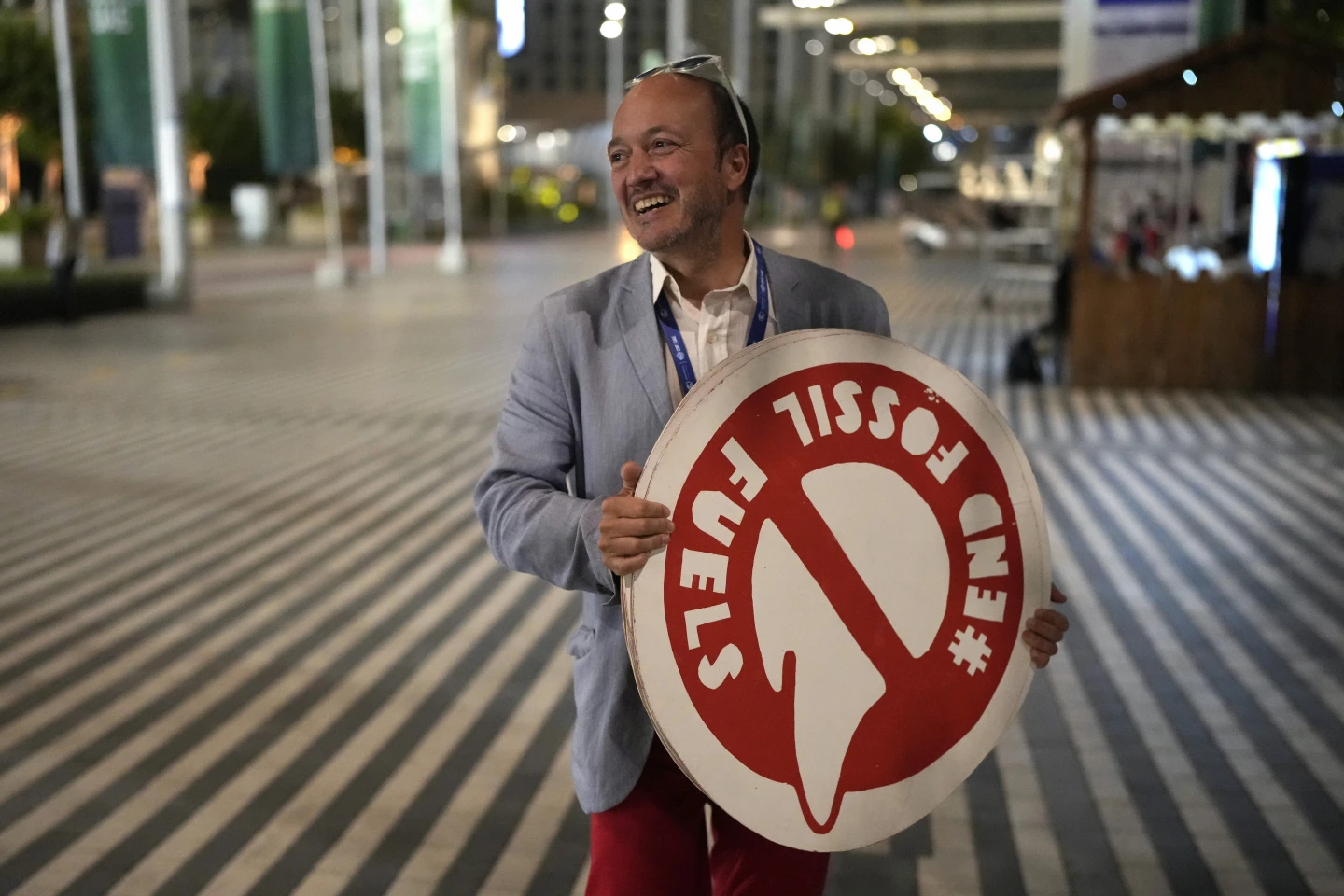
A man holds a sign that reads "end fossil fuels". Photo: AP
Intensive sessions at COP28 got underway in the wee hours of 13 December after the conference’s initial presidential draft drew criticism for avoiding calls for drastic action to curb warming. The United Arab Emirates (UAE) presented delegates from nearly 200 countries with a new central document, called the global inventory.
The aim of the global inventory is to help countries align their own climate plans with the 2015 Paris Agreement, which calls for limiting warming to 1.5 degrees Celsius.
An earlier version of the draft was criticized by many countries for changing the call for drastic action to address climate change. Specifically, the draft said parties "may" take certain actions to reduce emissions, instead of saying they "shall" or "must" do so.
Rachel Cleetus, director of energy and climate policy at the Union of Concerned Scientists, said the new deal was a clear improvement over the much-criticized previous version.
In addition to how countries adapt to a warming climate, the new agreement also addresses the financial constraints to help poorer nations adapt to climate change while emitting less carbon. Many of the financial issues are expected to be resolved over the next two years at upcoming climate conferences in Azerbaijan and Brazil. The United Nations Environment Program estimates that developing countries need between $194 billion and $366 billion a year to adapt to climate change.
"Overall, I think this new draft is more aggressive than the previous ones. However, it still fails to mobilize the financial resources needed to meet the targets," said Cristina Rumbaitis del Rio, senior adaptation adviser at the UN Foundation.
The 28th UN climate summit was due to end on December 12 after nearly two weeks of work and speeches. However, negotiators had to extend the meeting as countries continued to argue over phasing out fossil fuels.
Oil, gas and coal are major contributors to global warming. Activists, experts and many countries argue that drastically reducing the use of these fossil fuels is essential to curbing warming.
Hoai Phuong (according to AP)
Source








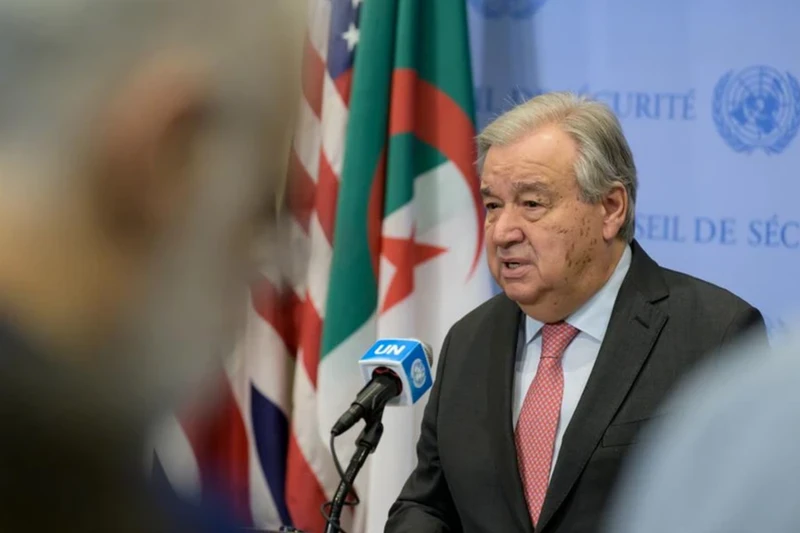


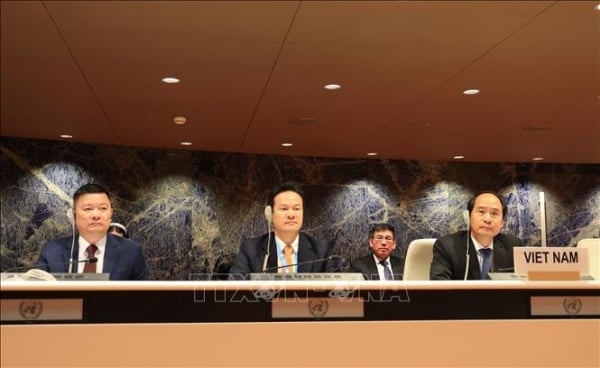




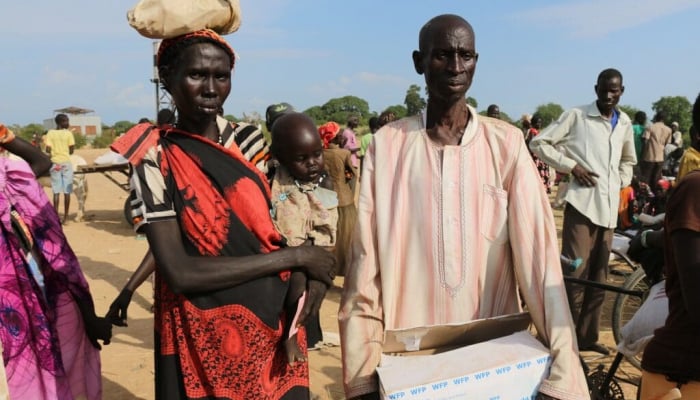












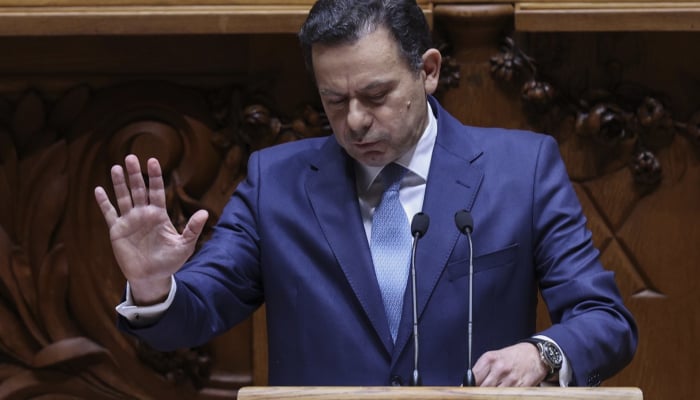
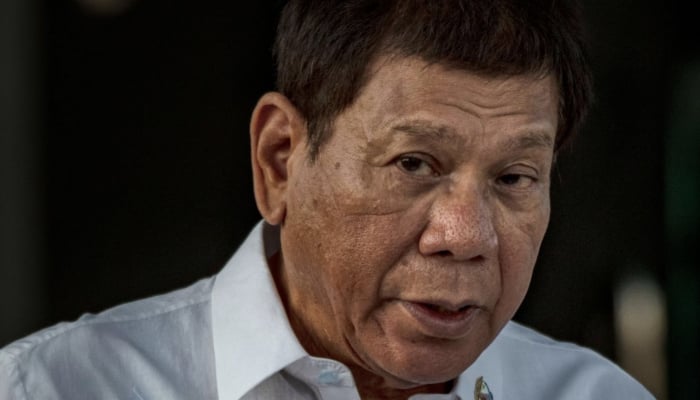



















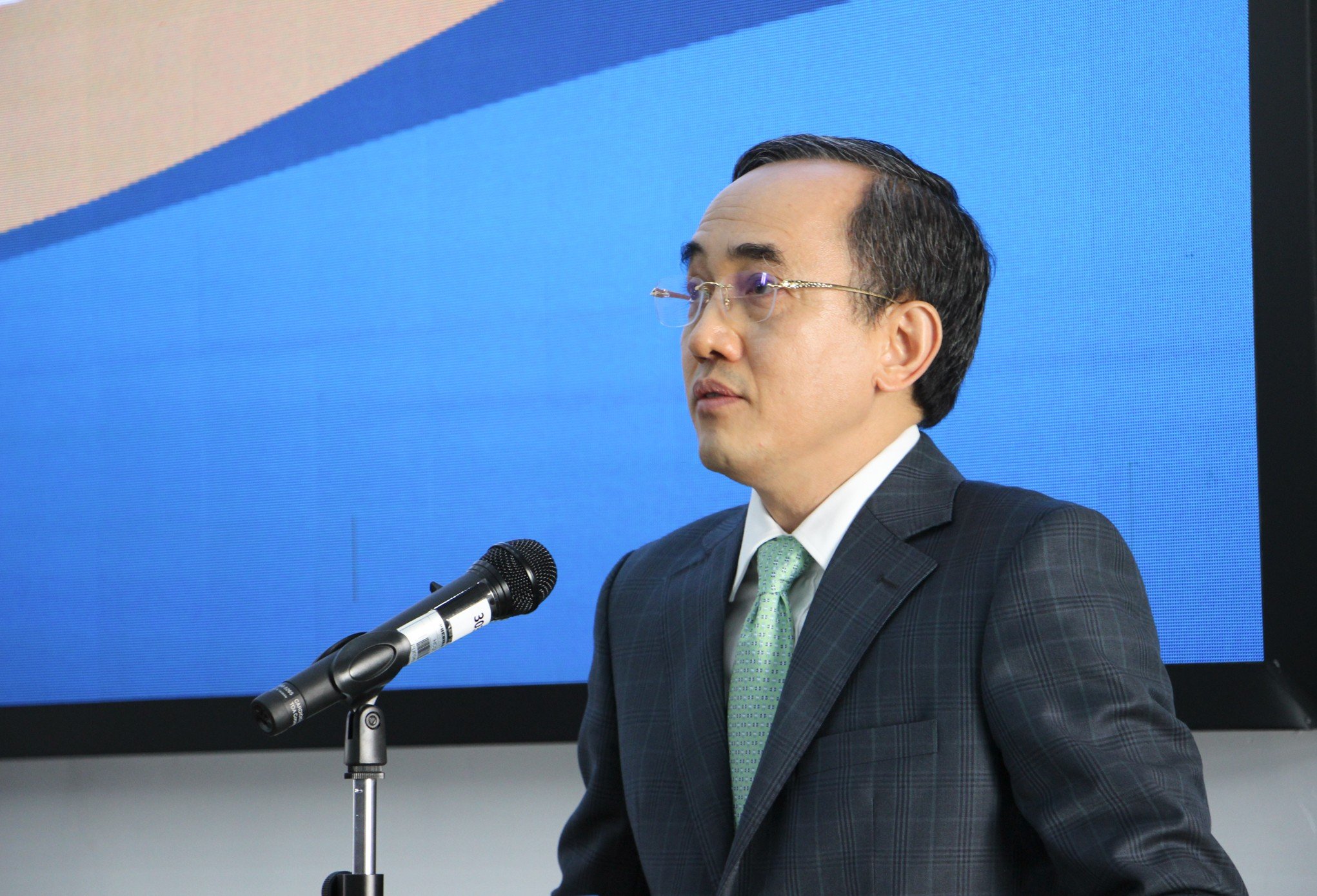













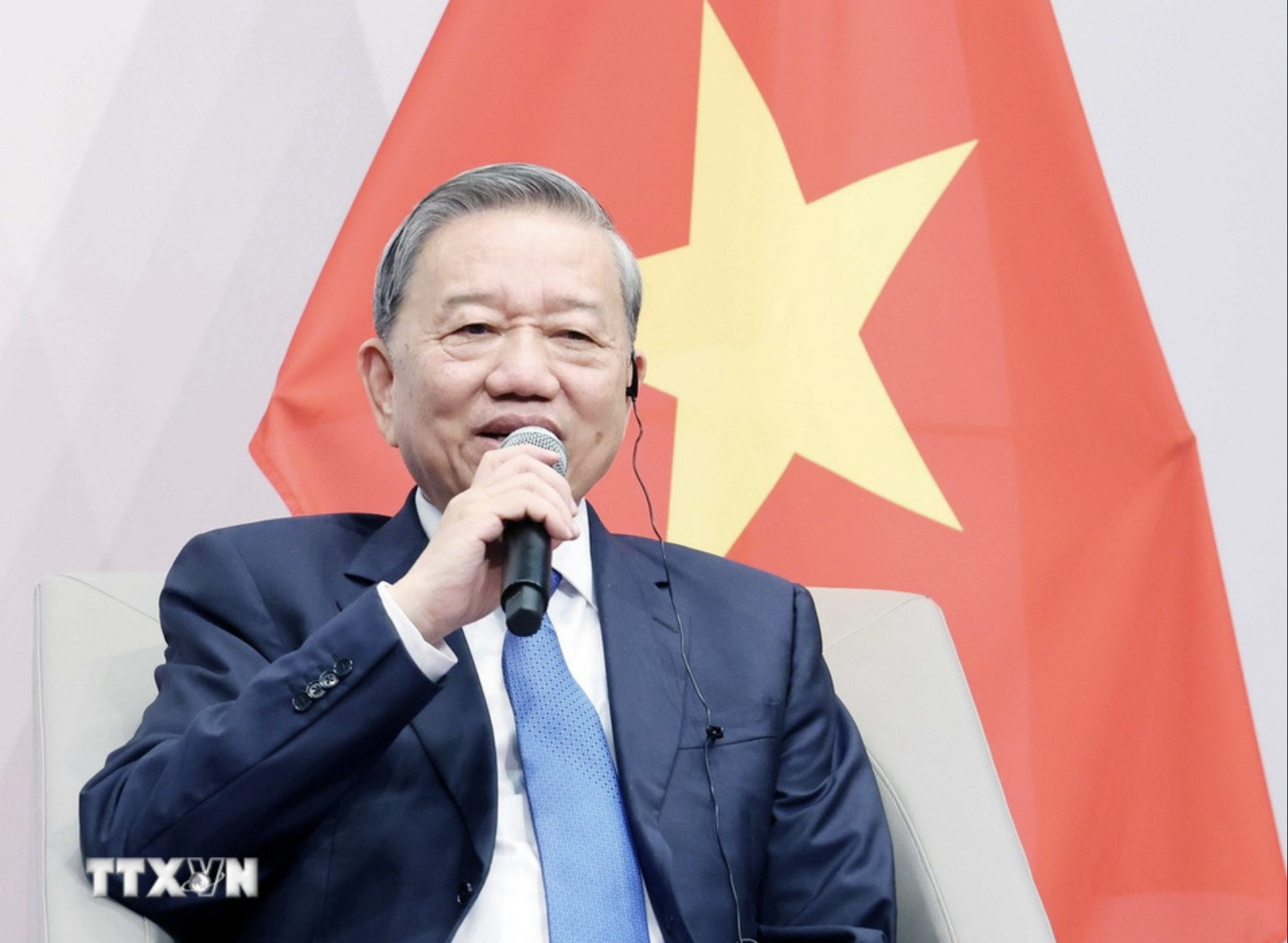

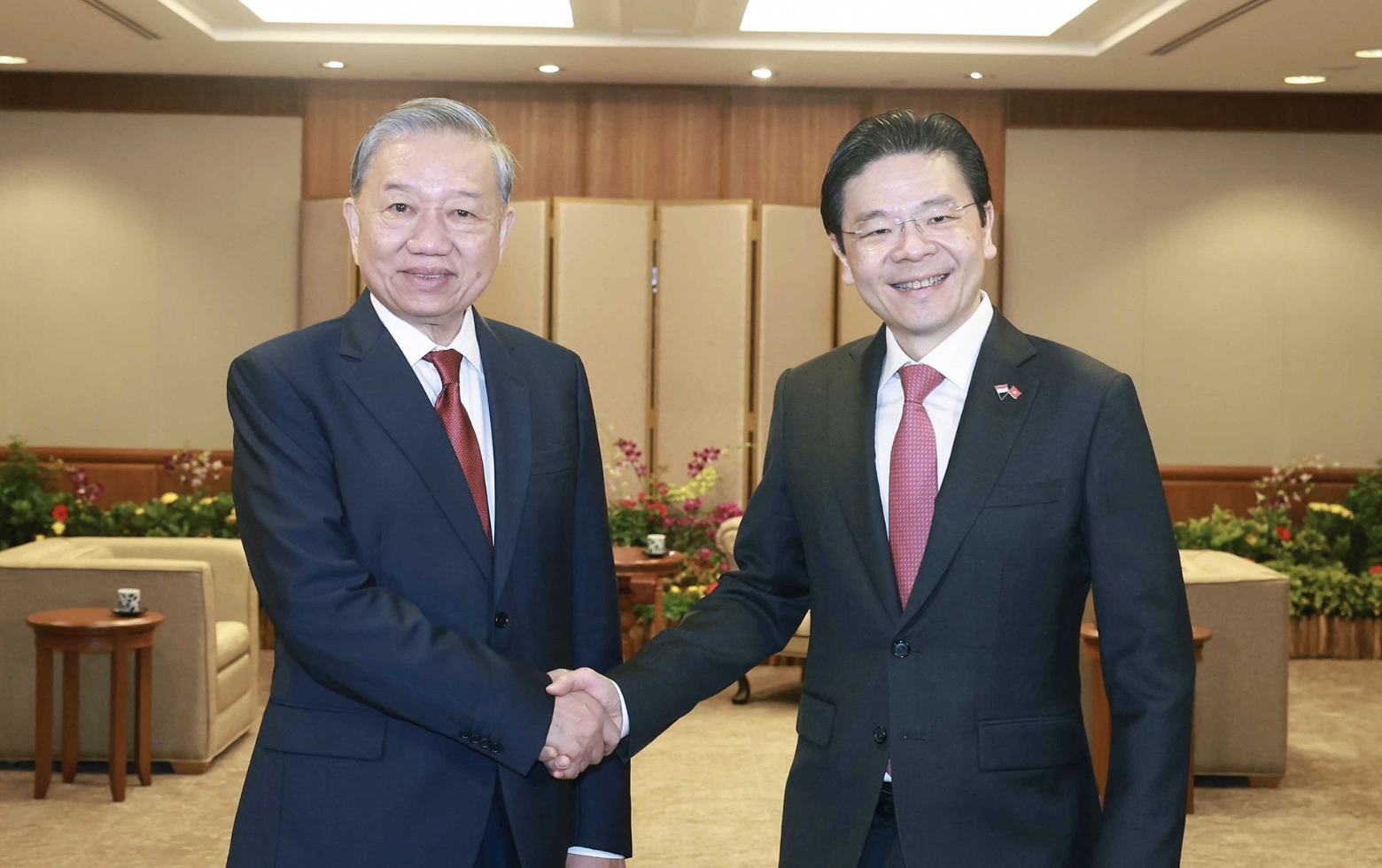
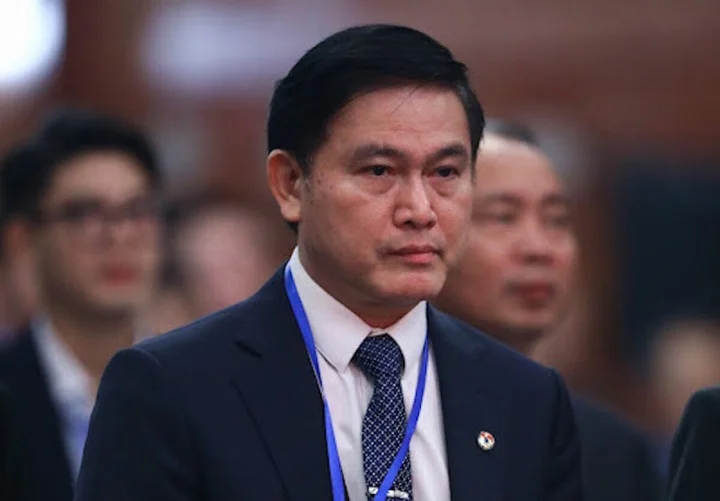

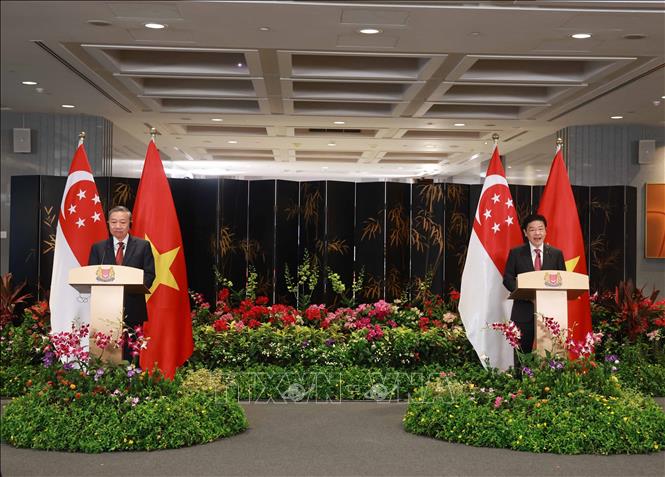


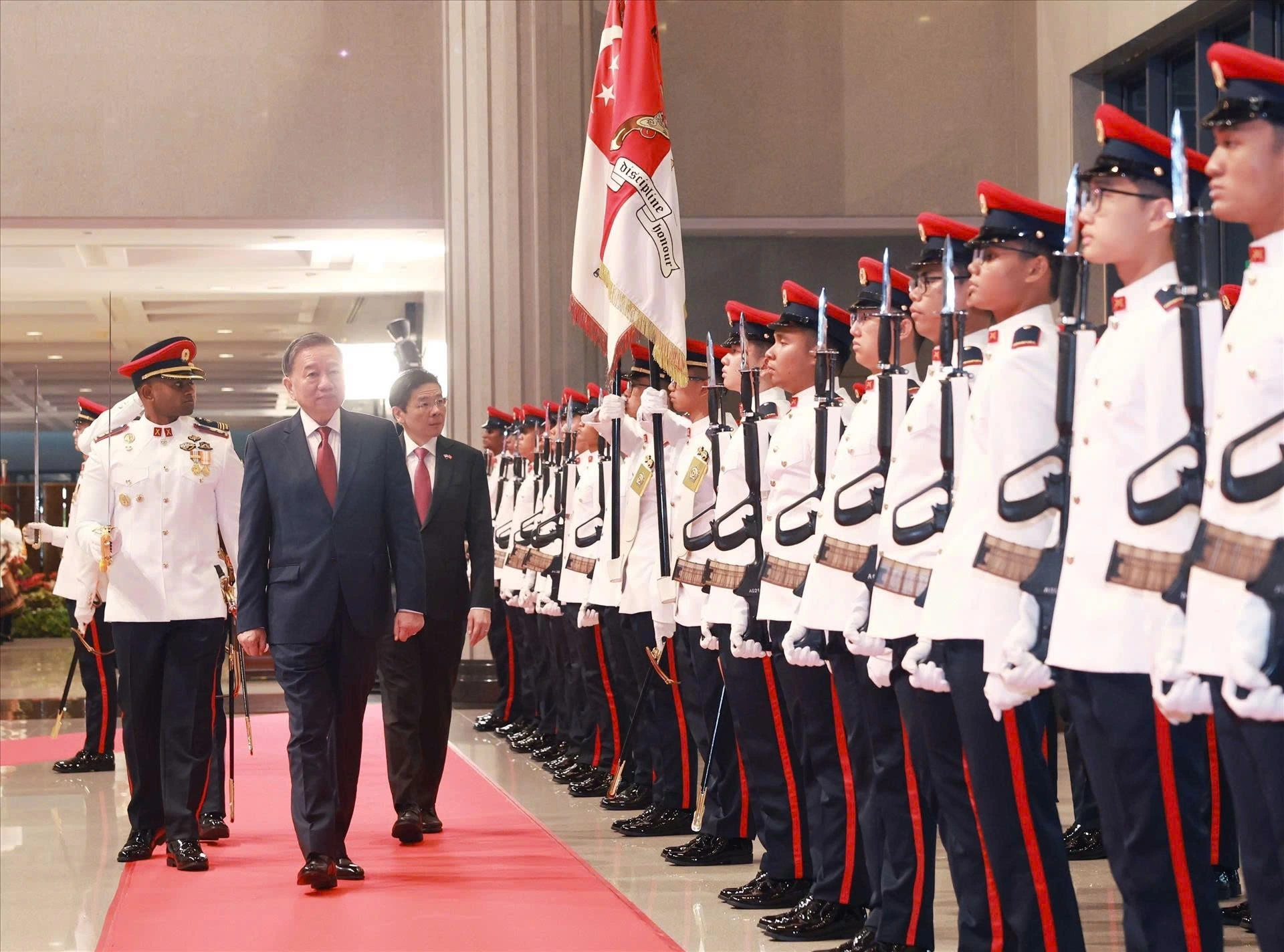

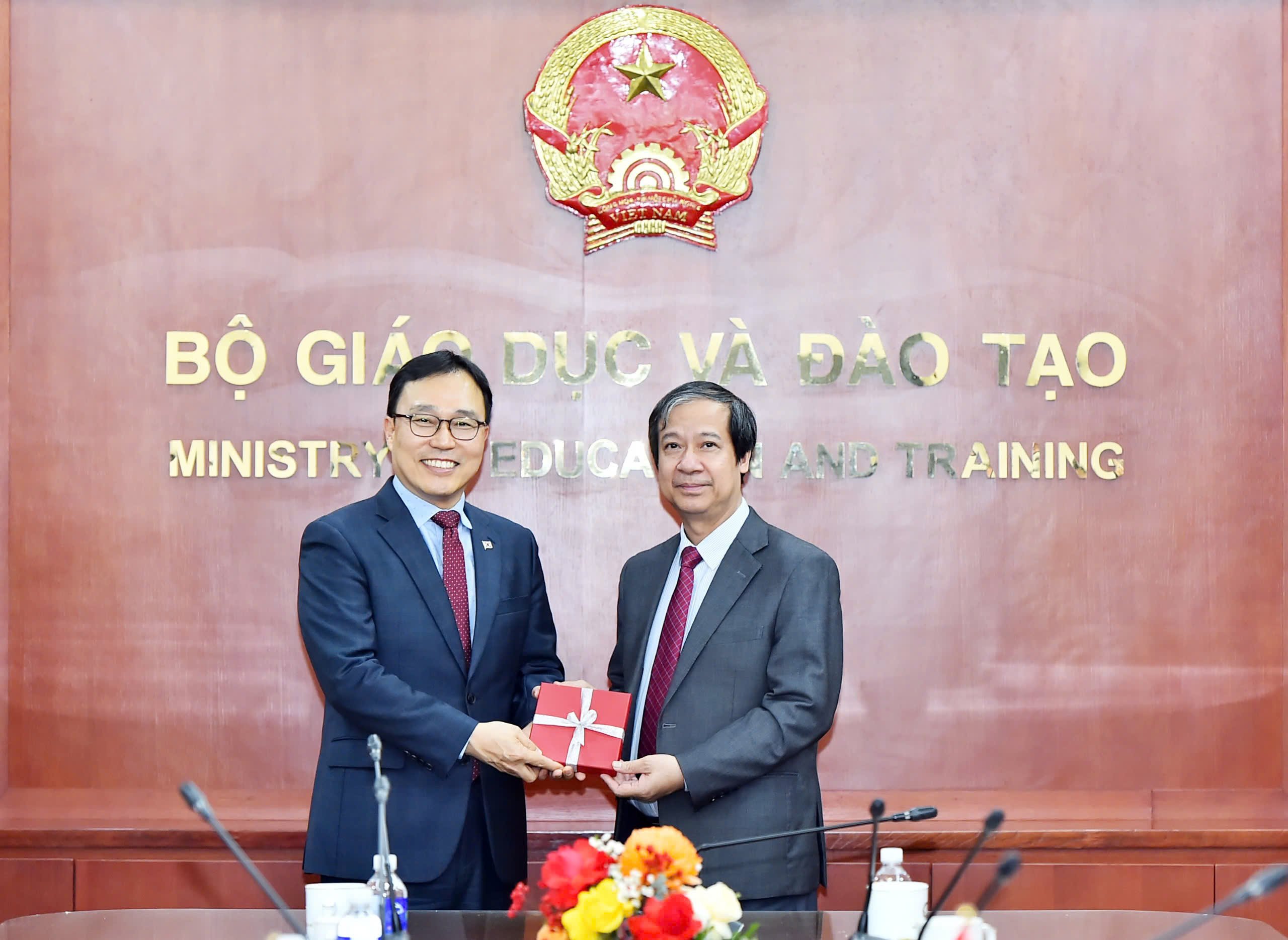

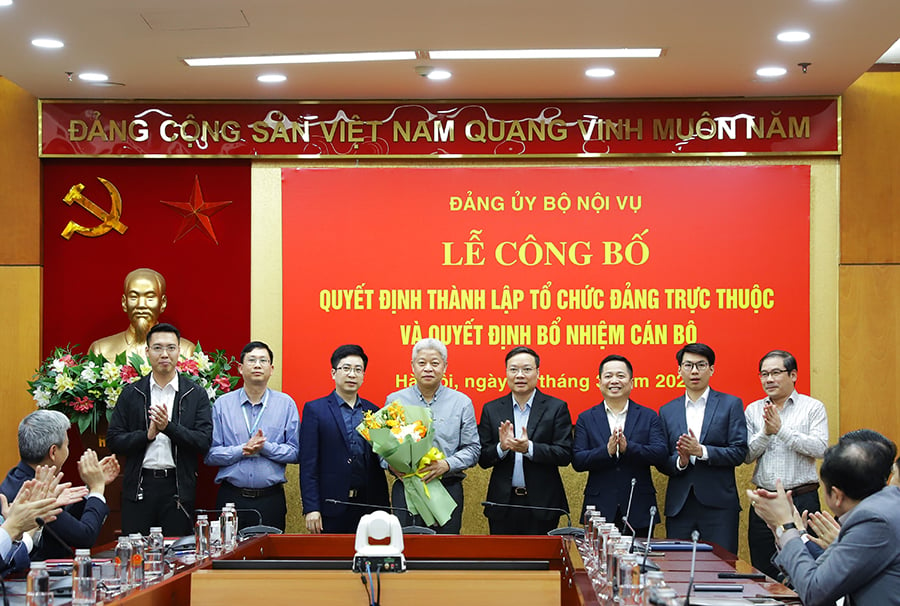



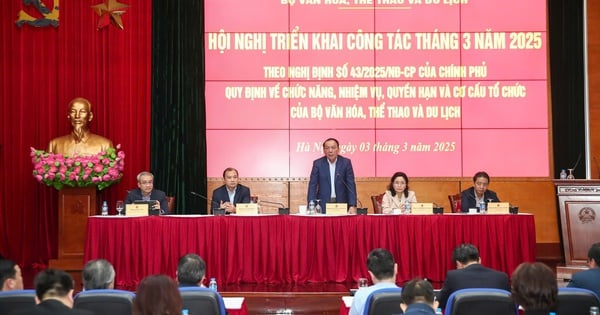















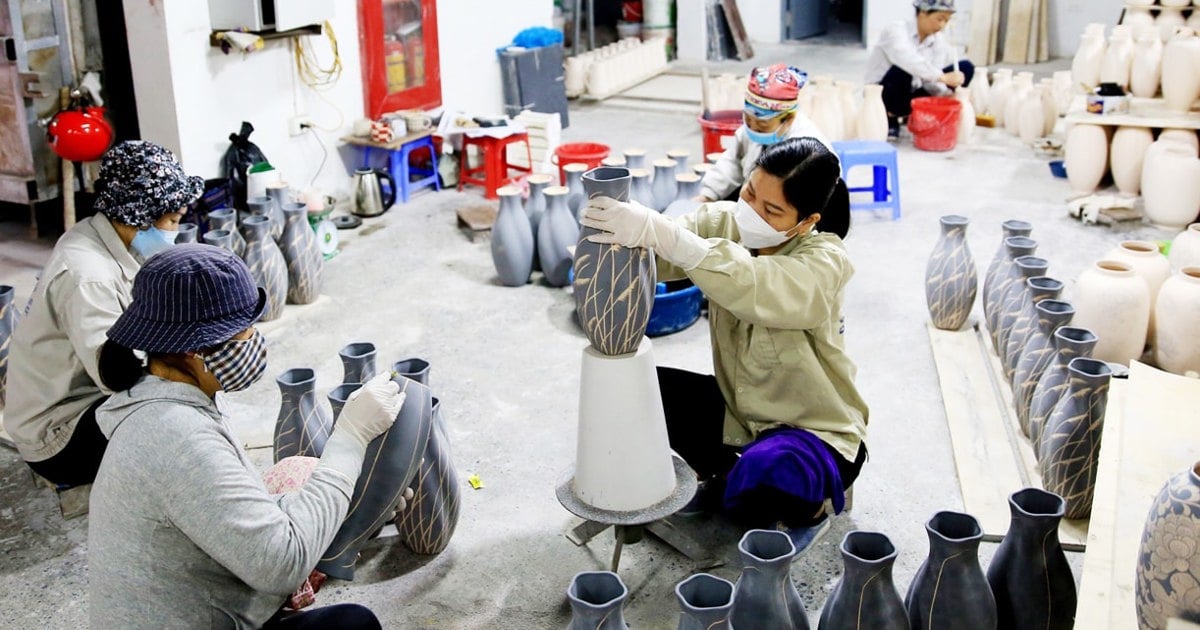

Comment (0)